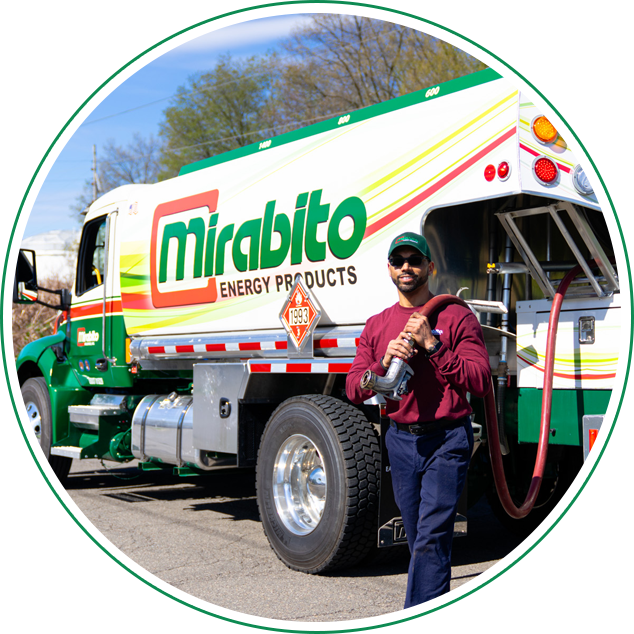
![]()
You might have noticed that more and more of your neighbors are installing propane tanks on their properties in the Finger Lakes, Pennsylvania, Eastern Connecticut, Western Massachusetts and Vermont.
Propane is a clean-burning, American-made energy source that can fill a lot of essential home functions, including:
Propane is also nontoxic. Even in the rare occurrence of a tank leak, it won’t harm water, soil, plant life or animals. Still, it’s important to know how to use this fuel in the safest way possible. Mirabito is here to help.
Propane doesn’t have a natural smell. So propane producers add an odorant to it, imparting the odor of rotten eggs, spoiled meat or a skunk’s spray. This makes a propane leak fairly easy to recognize. However, we still recommend that you install a UL-listed gas detector near all propane appliances.
Please note that a gas detector is different from a carbon monoxide (CO) detector. CO detectors are essential for home safety, but they will not identify a propane leak.
Let’s say you suspect that there’s a propane gas leak nearby. How should you respond?
The best course of action is to follow these steps:
For more propane safety information, check out the videos below from the Propane Education & Research Council (PERC).
